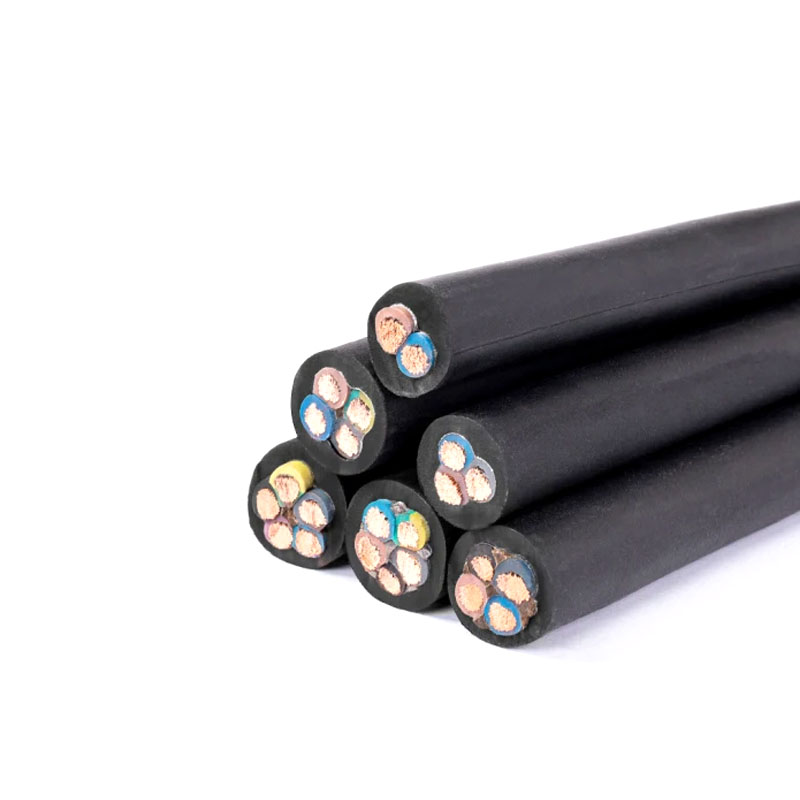
CE Certification for Rubber Extension Cables and Their Safety Standards
Understanding CE Certification for Rubber Extension Cables
In today’s electrical and industrial environments, safety and reliability are paramount. This is particularly true for extension cords, which are widely used to extend the reach of electrical power. Among these, rubber extension cables have gained popularity due to their durability and flexibility. However, ensuring that these cables meet safety and performance standards is crucial. This is where CE certification comes into play.
What is CE Certification?
CE certification is a marking that indicates that a product meets the essential requirements of relevant European health, safety, and environmental protection legislation. It is mandatory for certain products sold within the European Economic Area (EEA). The CE stands for Conformité Européenne, which translates to European Conformity. This certification not only ensures that a product is safe for use but also serves as a passport for free movement of products within the EEA.
Importance of Rubber Extension Cables
Rubber extension cables are designed for both indoor and outdoor use. Their main advantage lies in their ability to withstand extreme temperatures and harsh environmental conditions, making them a preferred choice for construction sites, outdoor events, and various industrial applications. The rubber insulation protects the cables from moisture, UV rays, and physical wear, thereby enhancing their longevity and performance.
Given their widespread use, it becomes essential that these cables comply with safety and quality standards. In fact, the use of non-compliant cables can lead to electrical failures or even pose a fire hazard. This highlights the necessity of having a certification like CE to ensure that the cables are safe and reliable.
The CE Certification Process
The CE certification process involves several steps. Manufacturers must first assess their products to determine which directives and standards apply. For rubber extension cables, relevant standards might include those related to electrical safety, environmental impact, and even specific performance requirements.
ce certification rubber extension cable

Once the applicable standards are identified, manufacturers conduct a conformity assessment
. This may involve testing the cables in accredited laboratories to ensure they meet the necessary safety specifications. After successful testing, manufacturers compile a technical file that documents compliance with the relevant directives.Finally, manufacturers must affix the CE marking to their products. This marking must be visible and legible and is accompanied by a declaration of conformity, which indicates that the product meets all applicable EU legislation.
Benefits of CE Certification
1. Safety Assurance CE certification assures consumers that the rubber extension cables have undergone rigorous testing and comply with European safety standards.
2. Market Access With CE marking, manufacturers can sell their products across EEA countries without the need for further modifications.
3. Consumer Confidence The CE marking enhances consumer trust in the product’s quality and safety, thus improving brand reputation.
4. Reduced Liability By adhering to standards and obtaining certification, manufacturers can potentially reduce liability in case of accidents or product failures.
Conclusion
In conclusion, CE certification for rubber extension cables is not merely a regulatory requirement; it is a critical assurance of safety and quality. As manufacturers strive to deliver reliable products, CE marking serves as a testament to their commitment to meeting stringent safety standards. For consumers and professionals in the industry, purchasing CE-certified rubber extension cables means investing in safety, reliability, and performance. In a rapidly evolving technological landscape, ensuring compliance with such standards helps pave the way for safer electrical practices, ultimately protecting lives and property. As the demand for reliable electrical solutions continues to grow, understanding and valuing CE certification will remain essential for both manufacturers and consumers alike.
-
The Quantum Leap of XLPE Cable in Power DistributionNewsMay.29,2025
-
Mastering the Essentials of Building WireNewsMay.29,2025
-
Innovative Horizons of Rubber Trailing CablesNewsMay.29,2025
-
Exploring the Versatile World of Rubber CablesNewsMay.29,2025
-
Decoding the Mysteries of Building CablesNewsMay.29,2025
-
Advancements Redefining Control Cable TechnologyNewsMay.29,2025
-
Why It's Time to Replace Old Rubber CablesNewsMay.28,2025














